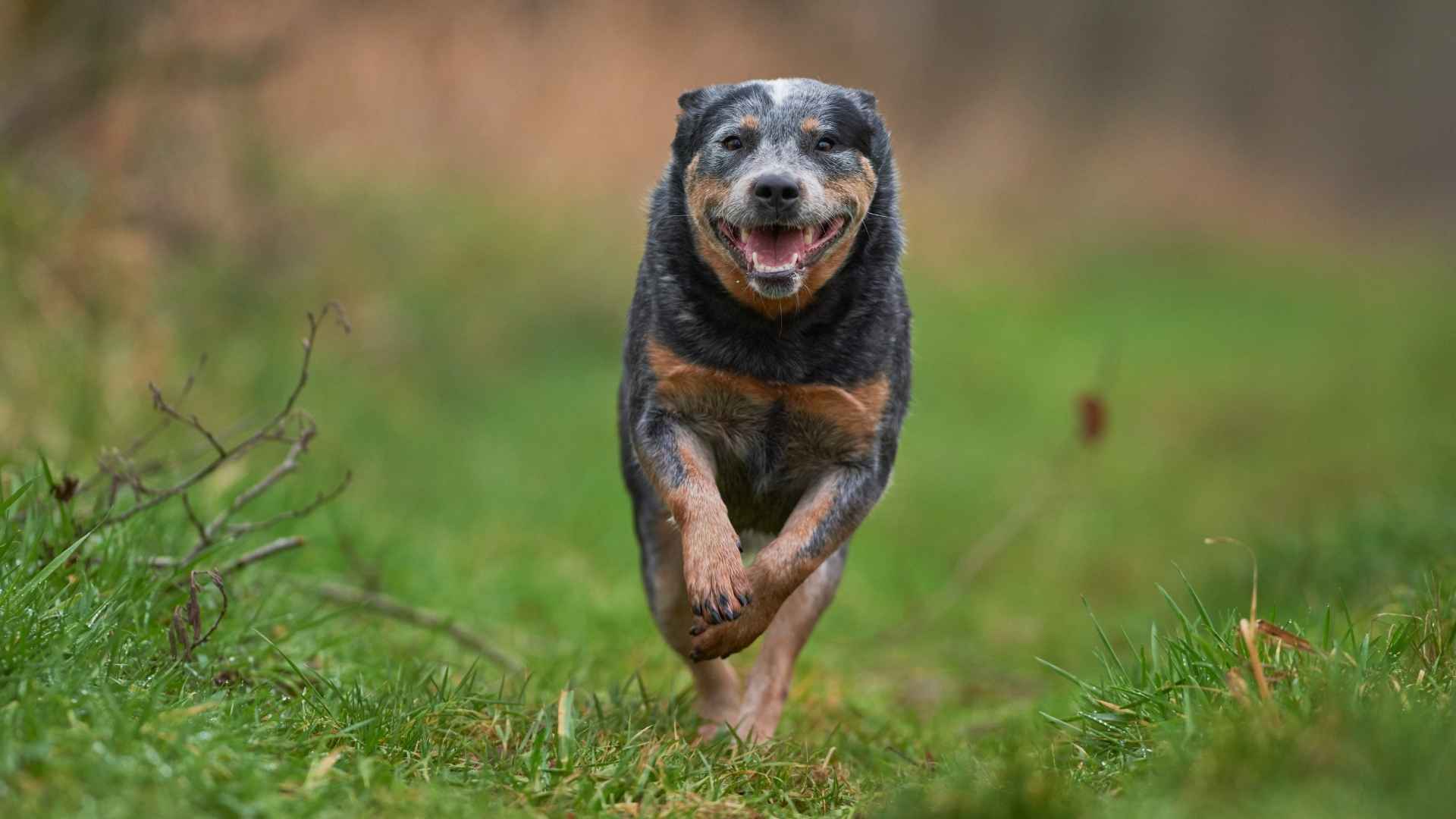When it comes to choosing a canine companion, health and longevity are often top priorities for pet owners. A healthy dog not only means fewer vet visits and lower medical costs but also more years of joyful companionship. While every dog deserves love and care, some breeds are naturally more resilient, with fewer genetic health issues and stronger immune systems.
These dogs often thrive with minimal medical intervention, provided they receive proper nutrition, regular exercise, and routine checkups. Whether you’re an active individual, a family with kids, or a first-time dog owner, selecting a breed known for its overall well-being can lead to a more fulfilling and stress-free pet experience.
In this guide, we’ll explore some of the healthiest dog breeds, focusing on those that are known for their robust constitution, balanced temperament, and ability to adapt to different lifestyles. Let’s discover your potential furry companion for a healthier, happier life.
Healthiest Dog Breeds to Own
1. Australian Cattle Dog
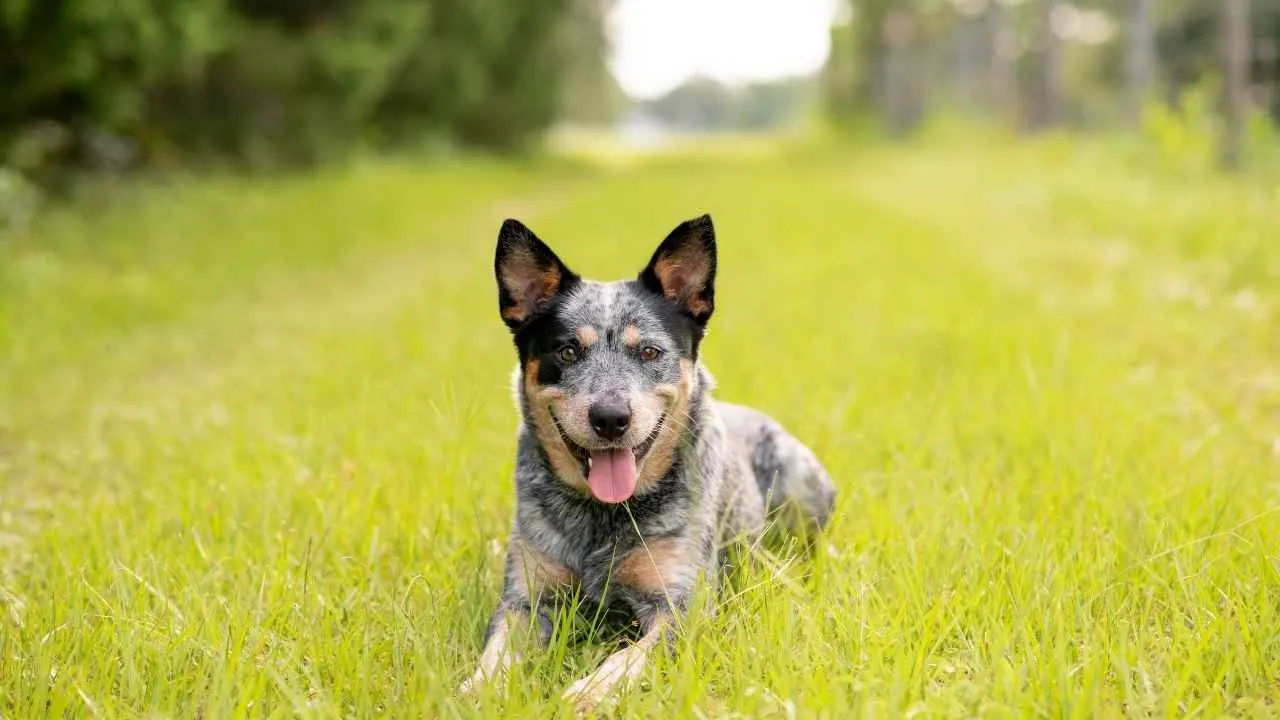
The Australian Cattle Dog is a highly energetic and intelligent herding dog, originally developed as a dog breed native to Australia. Known for their strong work ethic and remarkable stamina, these dogs were bred to handle livestock across vast, rugged terrains, making them naturally resilient and adaptable.
PetMD states that Australian Cattle Dogs are prone to hip dysplasia and progressive retinal atrophy (PRA). They may also experience deafness and joint issues due to their active and working nature.
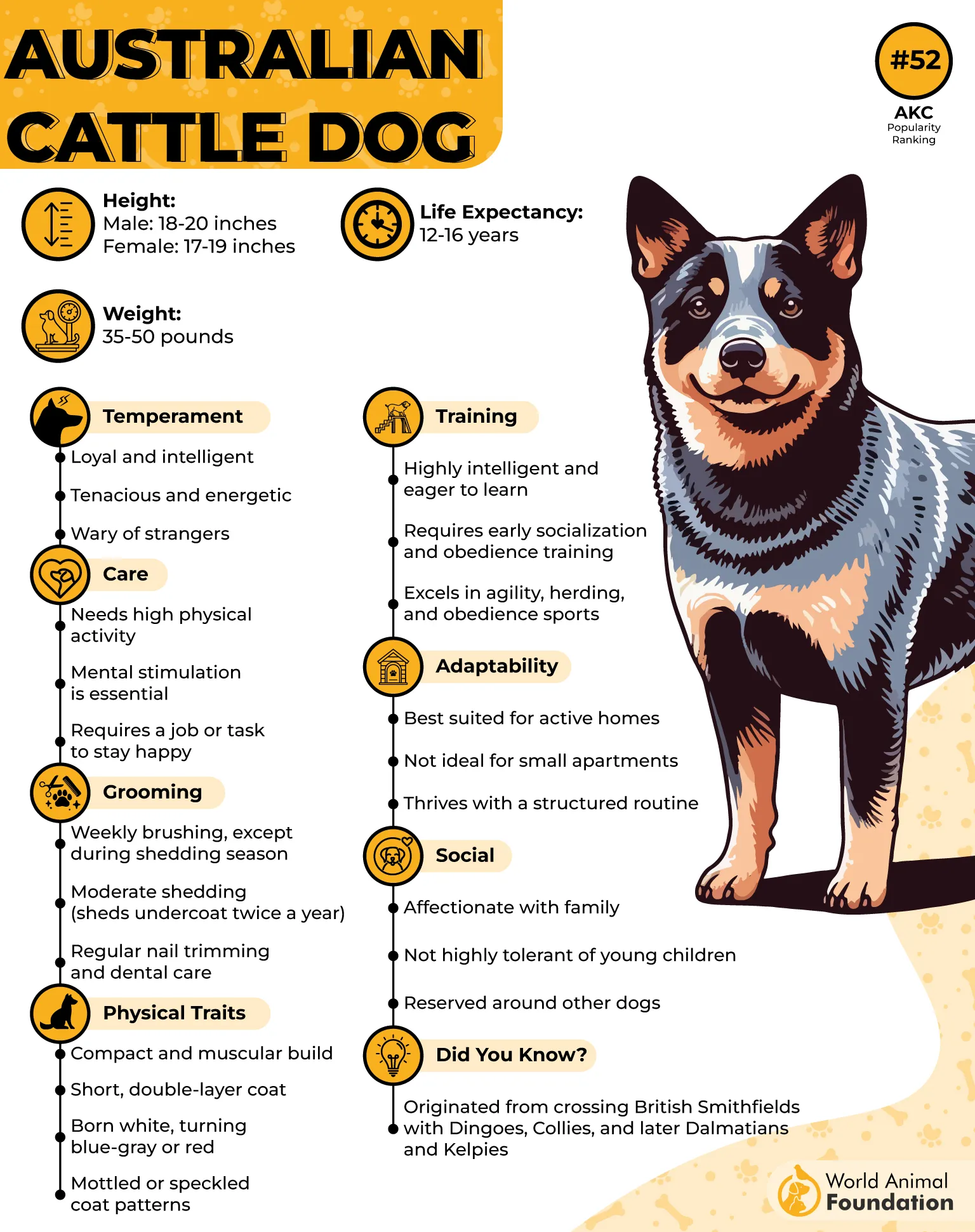
Australian Cattle Dog is incredibly active and needs consistent exercise to remain healthy and happy. They thrive in homes that can provide them with ample space and opportunities to work or engage in physical activities. While they are generally very healthy, it’s important to vet regularly to monitor for any potential issues.
This breed is known for being a bit more independent than some other working dogs, but they bond closely with their owners. Their natural intelligence and strong herding instincts make them excellent protectors of both livestock and family members, and they are best suited for active pet parents who can provide structured routines and mental challenges.
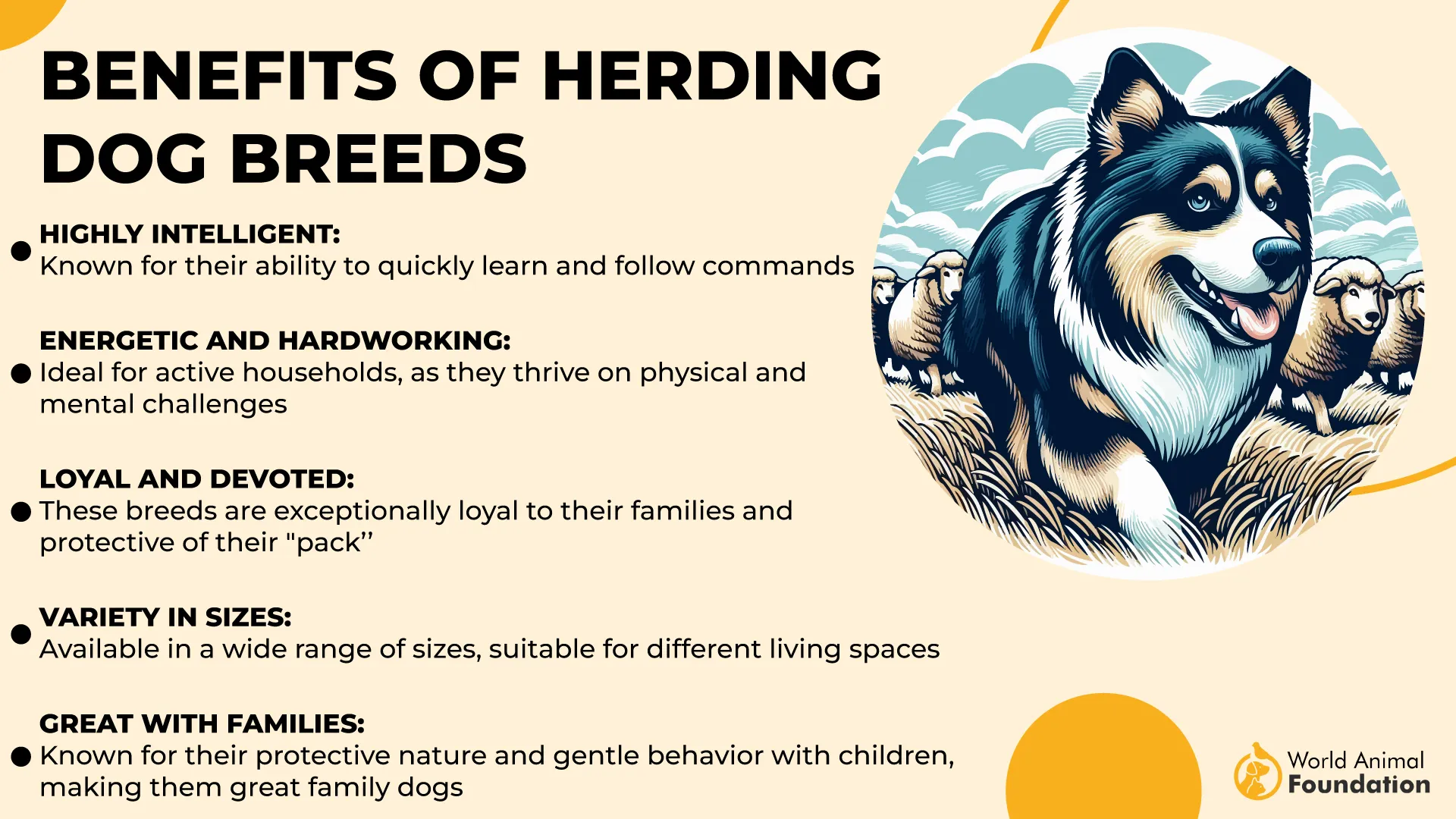
Despite their energetic nature, Australian Cattle Dogs require consistent training and socialization from a young age to ensure they interact well with kids and other animals. Their determination and intelligence make them a challenge for first-time dog owners, but they reward experienced handlers with loyalty and affection.
Australian Cattle Dog is a resilient dog that excels as a hardworking, intelligent, and loving companion. With proper care, a balanced diet, and regular veterinary checkups, they can lead a long, healthy life, remaining energetic and alert well into their senior years.
2. Beagle

The Beagle is often considered one of the healthiest dogs, particularly due to its relatively low occurrence of genetic issues. Originally bred as a hunting dog, Beagles have strong genetics that contribute to their resilience and durability. This dog can live between 12 to 15 years, enjoying a relatively long and healthy life.
As a hunting dog, Beagles were designed to be agile, energetic, and independent, which makes them well-suited to active families or individuals who can provide regular exercise. Regular walks, runs, or play sessions help maintain their overall health, keeping them physically fit and preventing obesity, which is a common concern for many small breeds.
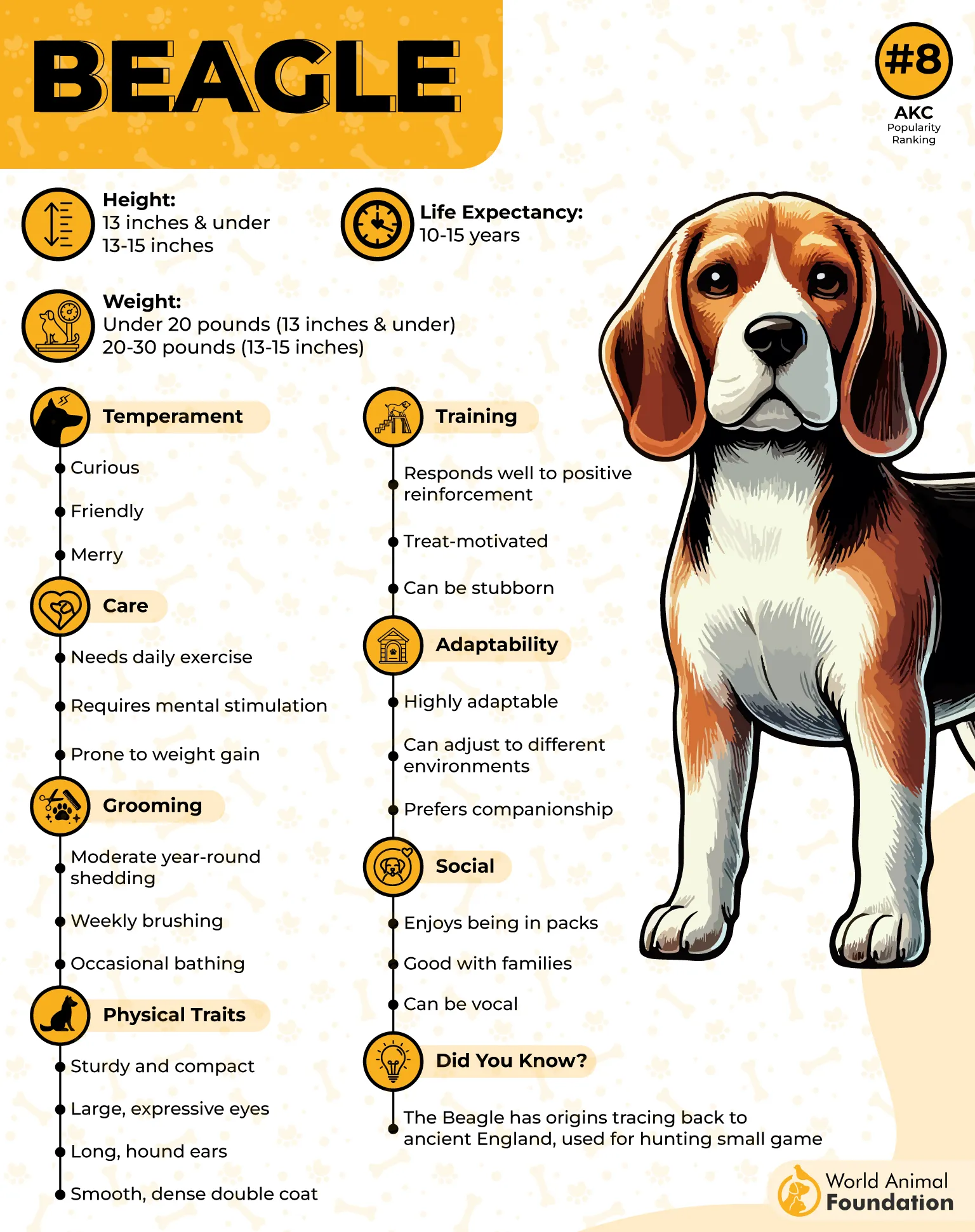
One of the Beagle’s most notable health benefits is its relatively few health problems. Beagles have fewer genetic disorders, making them a solid choice for potential dog owners seeking a healthy companion. While some Beagles may develop ear infections due to their floppy ears, regular cleaning can prevent most of these issues.
Their friendly and adaptable nature also contributes to their overall well-being. Beagles are easygoing, which can reduce stress-related health problems. They are great for families and individuals, as they are not only healthy but also have a calm temperament, which contributes to their overall happiness and longevity.
Overall, the Beagle stands out for its combination of excellent health, minimal health concerns, and loving temperament. With proper care and regular veterinary checkups, this dog can live a long and healthy life, making them an ideal choice for those looking for a loyal, low-maintenance companion.
3. Shiba Inu

The Shiba Inu is widely recognized as a healthy breed, making it an excellent choice for pet parents looking for a resilient and low-maintenance pet. Originating from Japan, this ancient breed has been naturally selected over centuries for resilience and independence.
Shibas have a sturdy, athletic build and rarely suffer from common canine ailments, making them a low-maintenance choice for owners concerned about long-term health.
Petplan states that Shiba Inus are generally healthy dogs and rarely suffer from serious genetic disorders that can affect other dogs. However, it may occasionally face minor health issues such as allergies and dental issues. However, these conditions are uncommon and manageable with routine veterinary care.
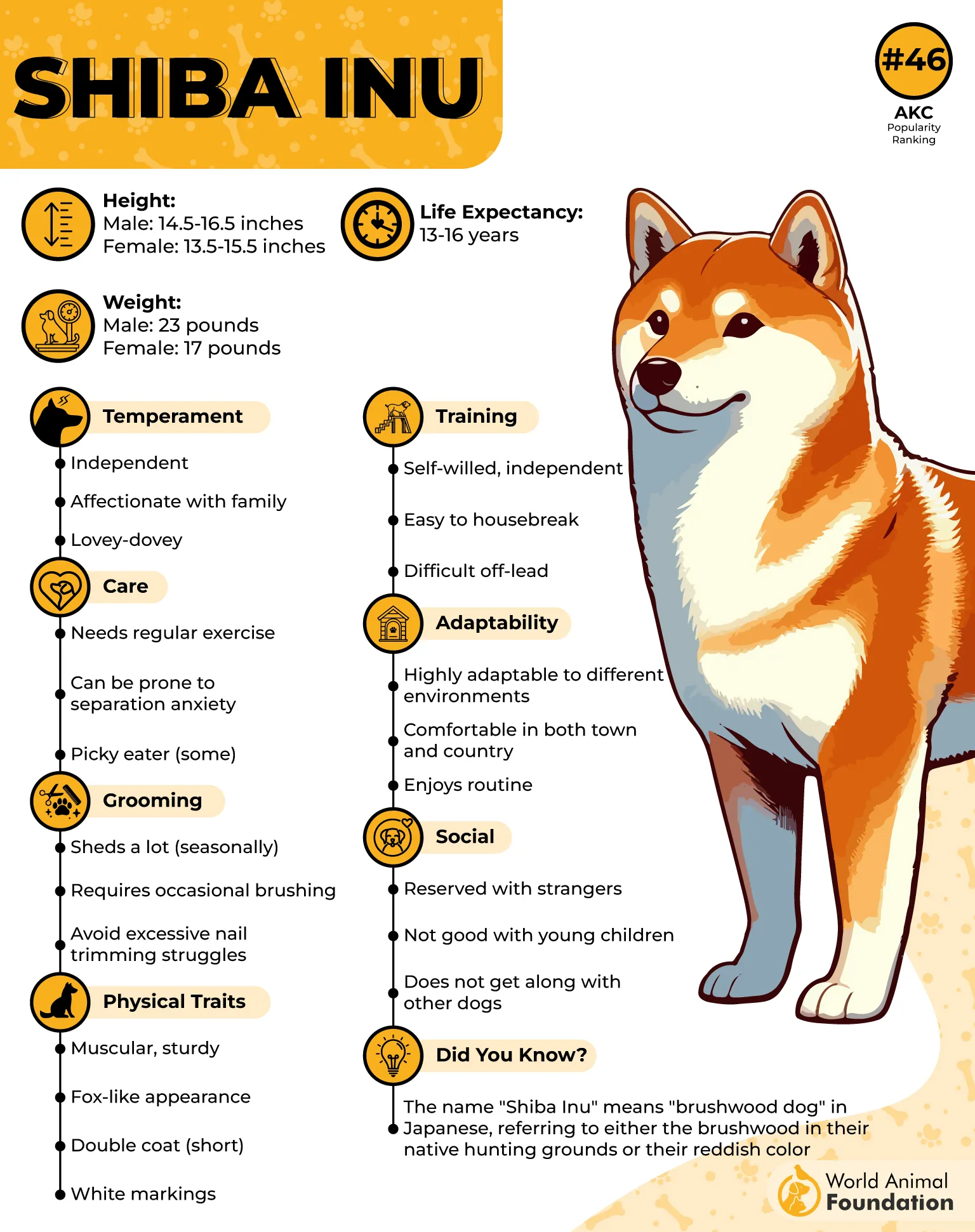
Being an intelligent breed and alert dog, the Shiba Inu benefits from both mental sharpness and physical agility, which contribute to its long-term well-being. Its thick, long fur is easy to maintain with regular brushing, and doesn’t require constant grooming or medical attention to stay in top shape. This makes it a practical and low-maintenance option for owners focused on canine health.
It adapts well to different environments and typically remains active and agile into old age. Its balanced energy levels and natural cleanliness also support its physical health over the years.
Its ability to live a long, active life with minimal medical intervention makes it an ideal choice for those seeking a reliable, low-risk companion. With proper care, a Shiba Inu can offer years of vibrant and joyful companionship.
4. Whippet
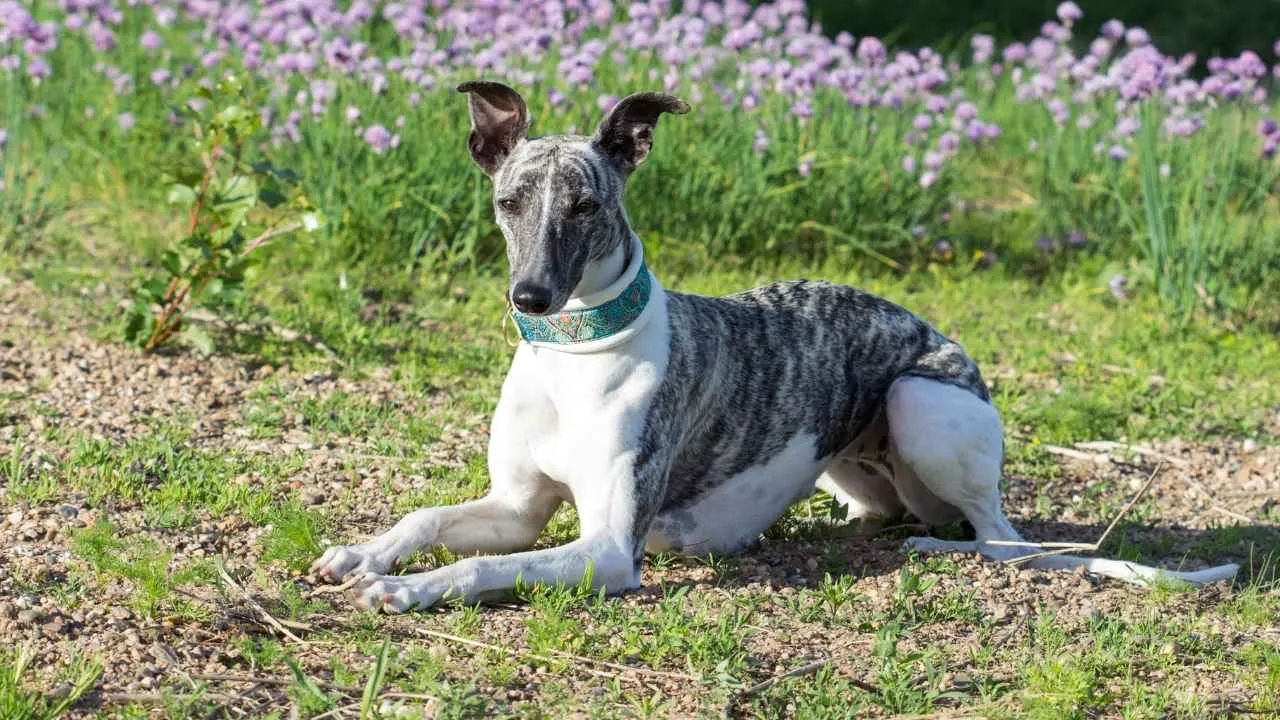
The Whippet is an intelligent dog breed known for its sleek build, speed, and friendly nature. Native to the United Kingdom, Whippets were originally bred for hunting small game, making them agile, quick, and active dogs.
Their energy levels are high, but they are also very adaptable to living in various environments, from apartments to houses with yards. With early training, Whippets are well-behaved and can thrive as loyal, loving companions.
Their average lifespan of 12 to 15 years is fairly typical for medium-sized dogs, and with the right care, they can live a long, happy life.
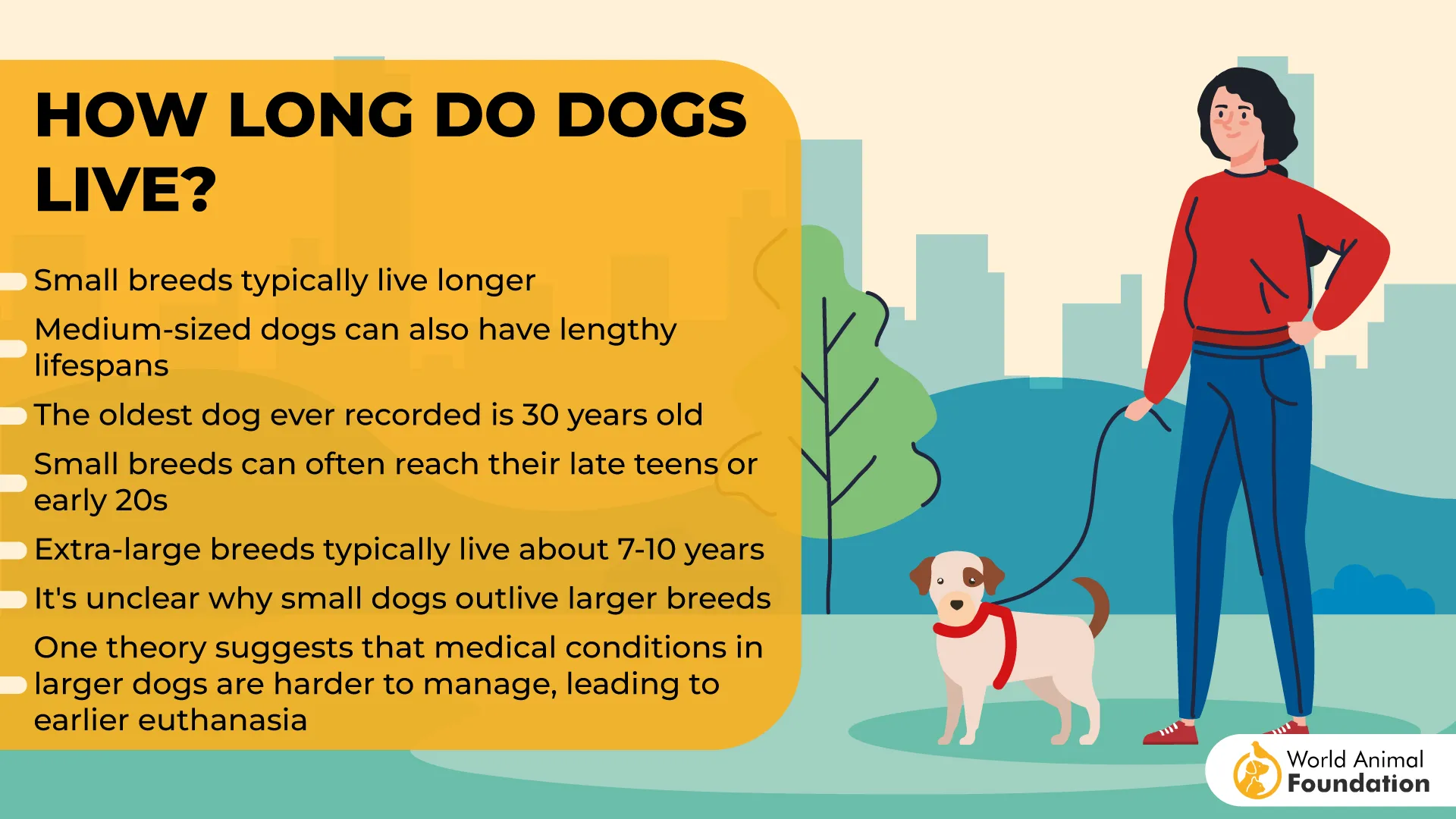
Whippets tend to have few health issues, which makes them a great option for pet parents looking for a healthy dog companion.
As PDSA states, they may still be prone to certain conditions such as heart disease and Von Willebrand Disease. It’s important to maintain regular vet checkups to ensure they stay in top shape.
Their proper diet is essential to their overall health, as their lean body requires the right balance of nutrients to maintain energy levels without gaining excess weight. This breed is an excellent choice for those who enjoy active lifestyles, as Whippets are also known to excel in dog sports and enjoy activities such as running or playing fetch.
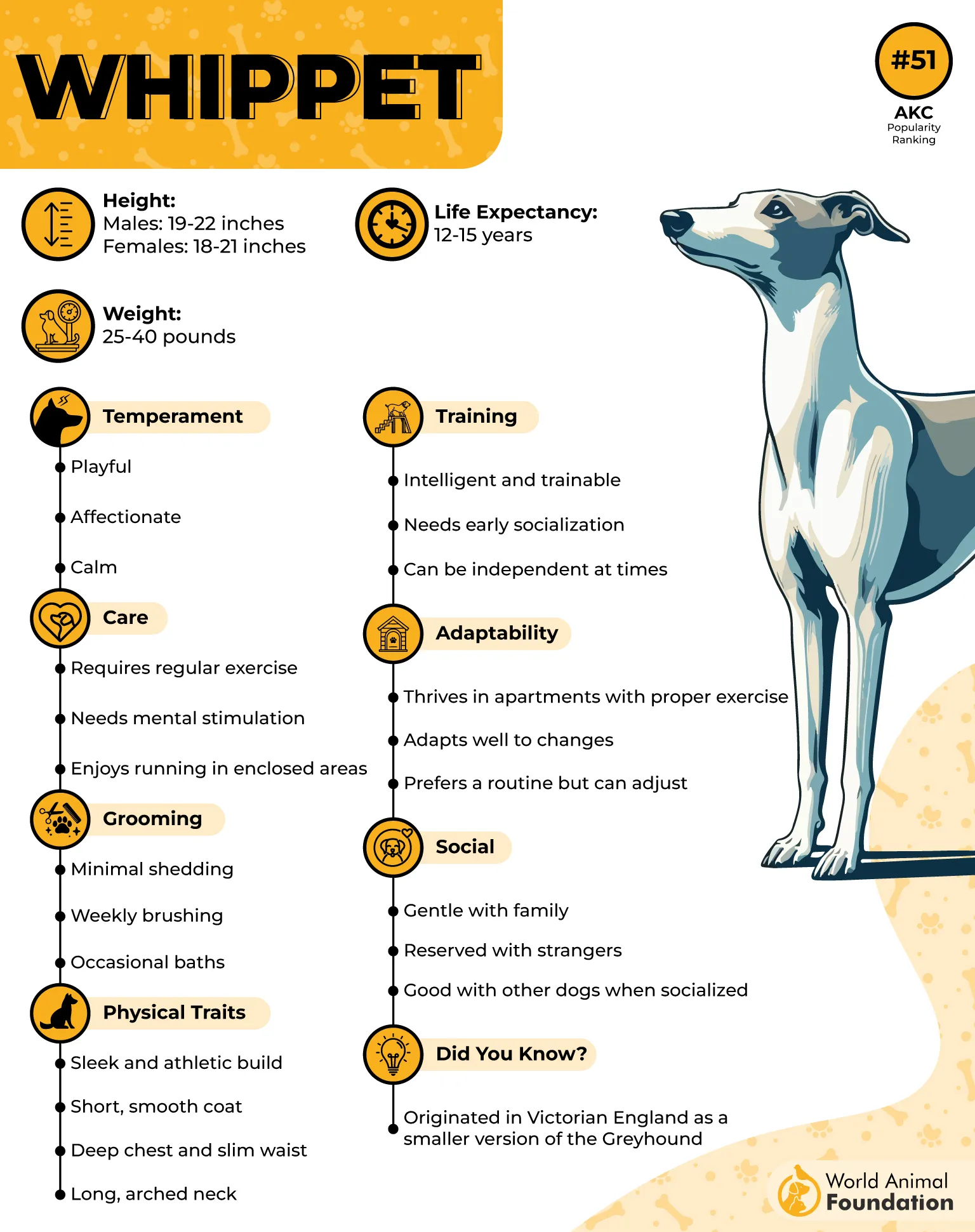
Whippets make great family dogs because of their affectionate and gentle nature. Despite their speed and athleticism, they are generally calm indoors and get along well with children and other pets. With training and consistent care, they integrate easily into family life, offering companionship without being overly demanding.
Whippets are a generally healthy breed that is easy to maintain and an ideal companion for active families. Regular vet visits, a healthy diet, and proper training will ensure that this charming dog remains a beloved member of the family for many years to come.
5. Anatolian Shepherd

The Anatolian Shepherd is a large, resilient breed known for its strength, intelligence, and protective nature. As a breed that was originally used for guarding livestock, the Anatolian Shepherd is well-suited to various environments and typically experiences the least health concerns.
Their robust genetics and natural instincts contribute to their overall health and longevity, making them a solid choice for those seeking a healthy and active canine companion.
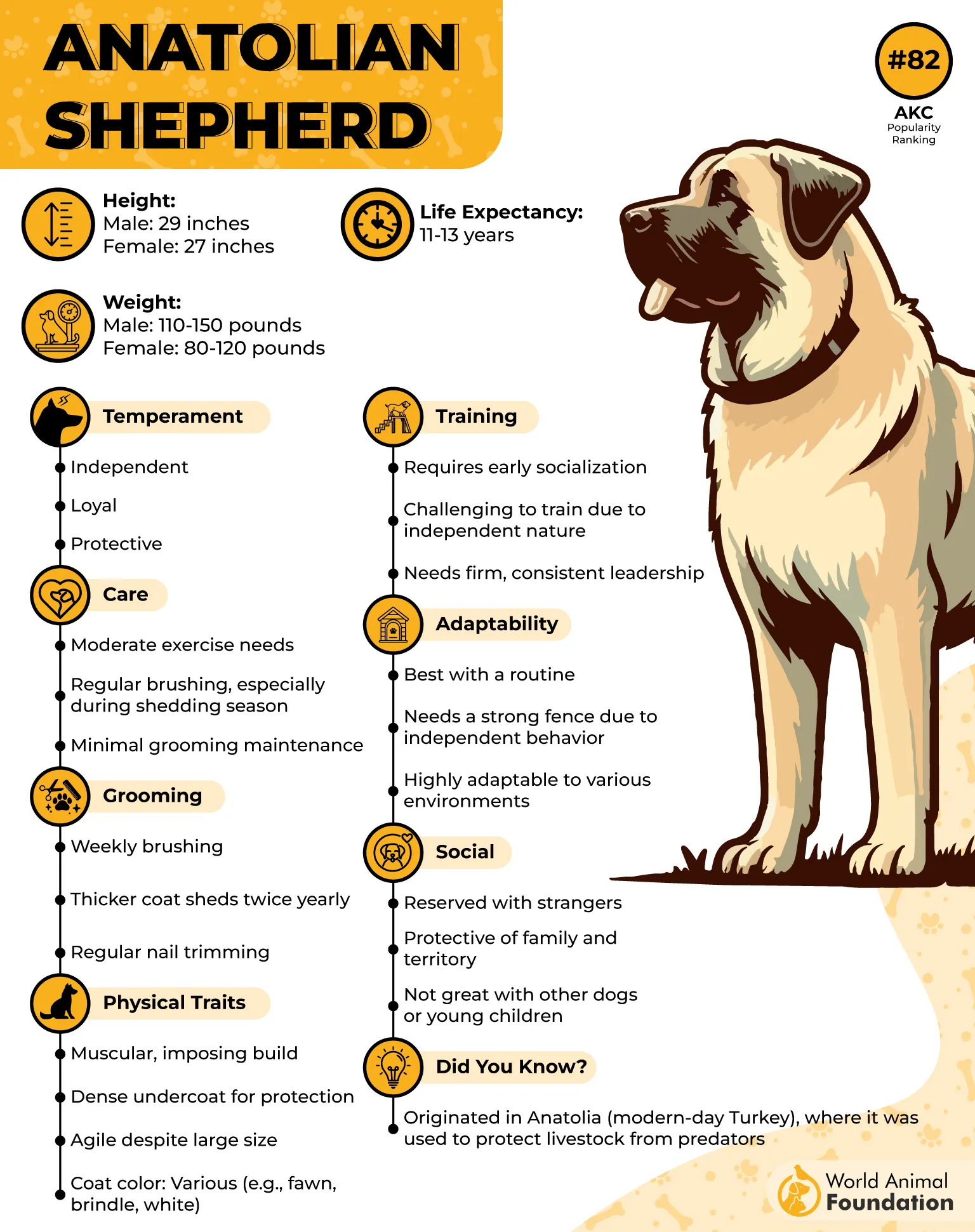
Anatolian Shepherd’s low health issues can be attributed to its history as a working dog. These dogs were bred for strength and endurance, which helped them develop strong immune systems and resist common canine diseases. As a result, they tend to have fewer genetic disorders compared to other breeds, ensuring a longer and healthier life.
The Anatolian Shepherd’s intelligent nature and natural guarding instincts make them excellent working dogs, especially in dog sports or tasks that require focus and strength. These traits also make them highly trainable, though their independent mindset means they may need experienced pet parents who can provide firm guidance and structure. Regular mental and physical stimulation is key to their happiness and health.
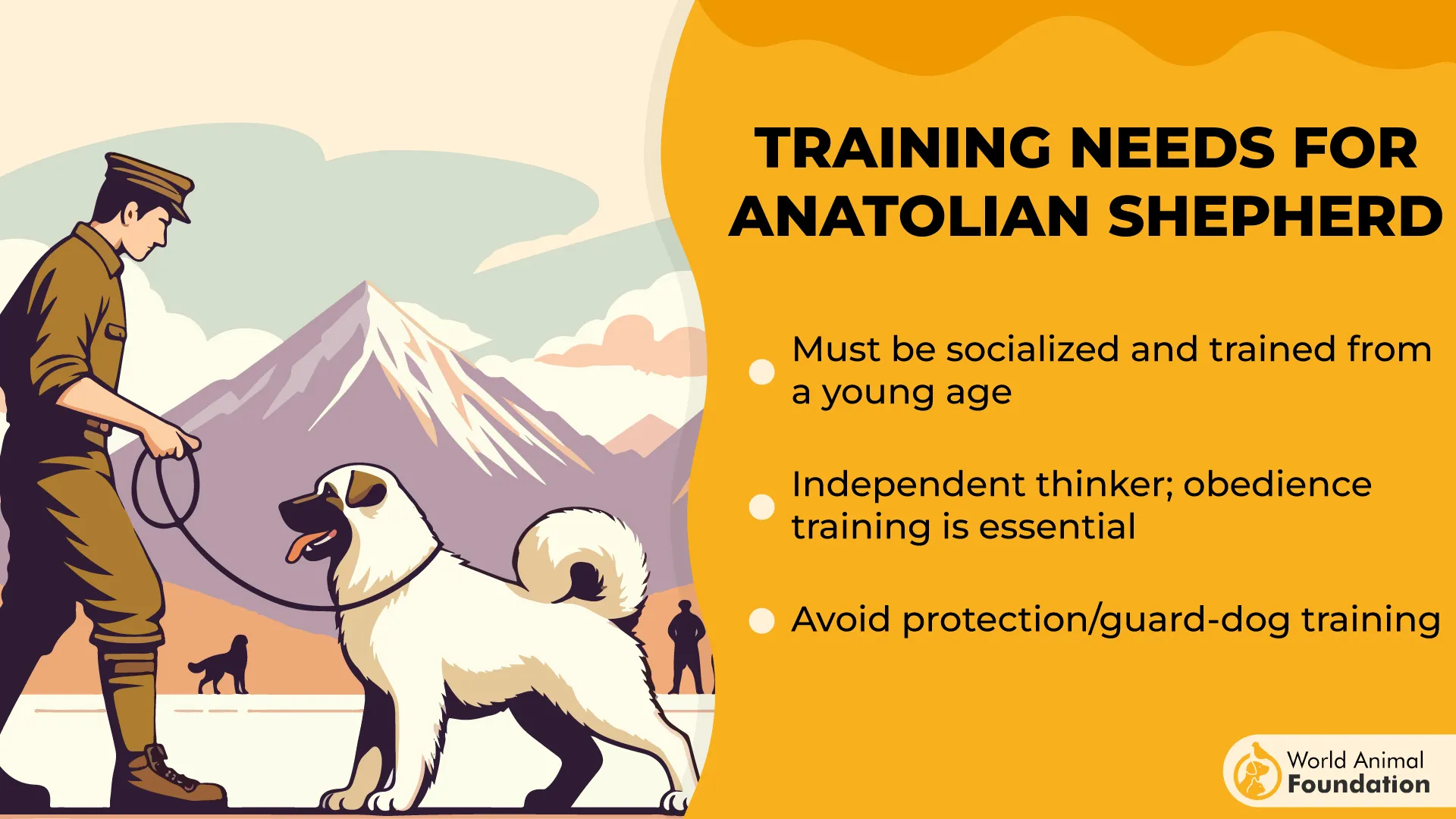
Although the Anatolian Shepherd is known for being healthy, it is still important to monitor for common conditions in large breeds, such as hip dysplasia. However, these issues are less frequent in the Anatolian Shepherd when compared to many other larger breeds. Their generally healthy constitution allows them to thrive in environments where they can stay active and engaged.
Anatolian Shepherd can live a long and healthy life. They make great companions for those who are prepared to provide them with the training, exercise, and space they need to remain healthy, strong, and loyal throughout their lifespan.
6. Belgian Malinois
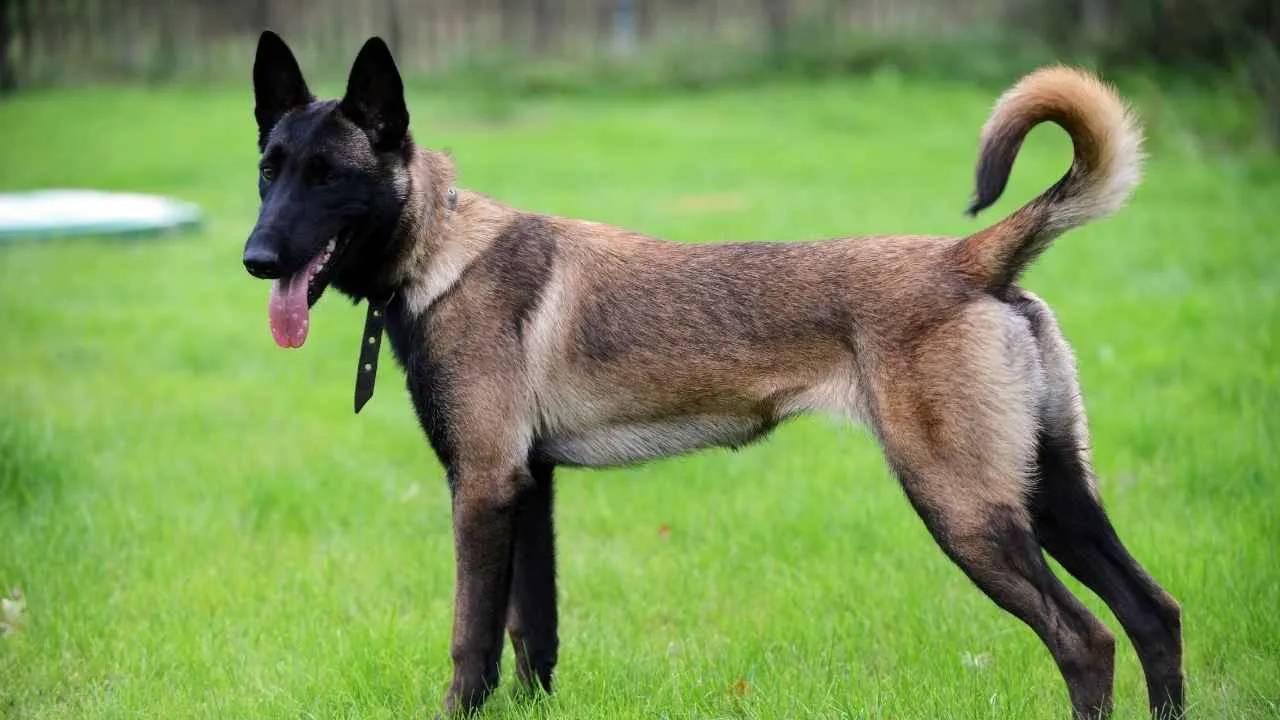
The Belgian Malinois is a highly intelligent and energetic breed, often favored for its boundless energy and ability to excel in various dog shows and working roles. Known for their agility and strong drive, this breed thrives in active households where they can engage in physical and mental activities; They make a happy dog when properly stimulated.
Belgian Malinois are highly intelligent, quick learners, and excellent working dogs. Their ability to excel in tasks such as search and rescue, police work, and obedience training sets them apart as an ideal companion for owners who enjoy an active lifestyle and can provide the structure they need.
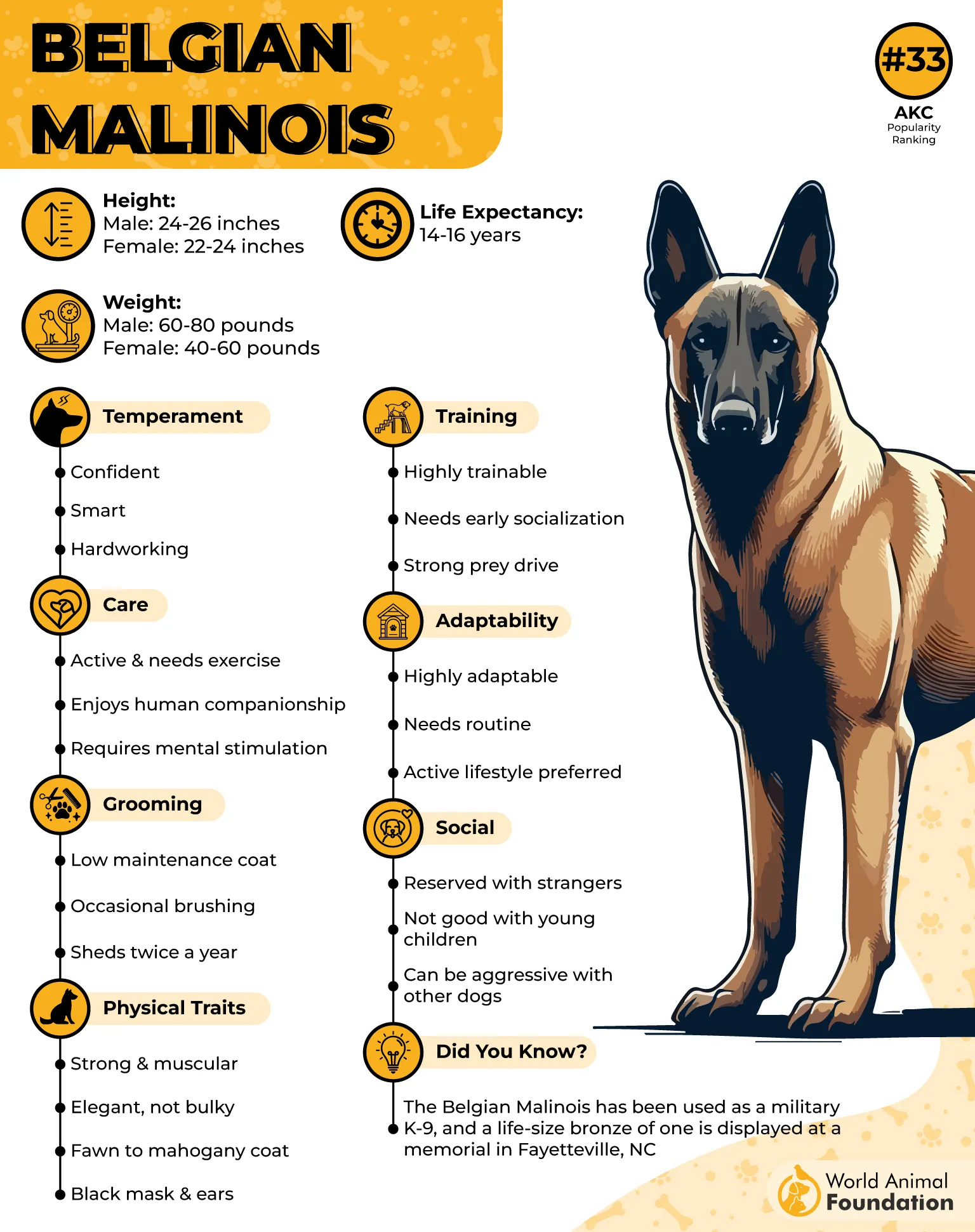
Belgian Malinois is susceptible to certain health conditions, including intervertebral disc disease. These issues are somewhat common in active breeds, though they can be managed and avoided if the dog is well-cared for. It is important to ensure a controlled diet and provide regular exercise to maintain their physical well-being throughout their life.
Although this breed has a relatively long lifespan, the Belgian Malinois may experience some health challenges as it ages, particularly in old age, so regular veterinary care is essential. With proper care, they can live a healthy life and remain an active, loyal companion well into their senior years.
Their strong work ethic and high intelligence make them a breed best suited for experienced dog owners, ready to provide the necessary mental and physical challenges.
Belgian Malinois thrives in active environments with owners who can provide the training, stimulation, and exercise needed to keep them healthy, happy, and engaged throughout their lives.
7. German Shorthaired Pointer
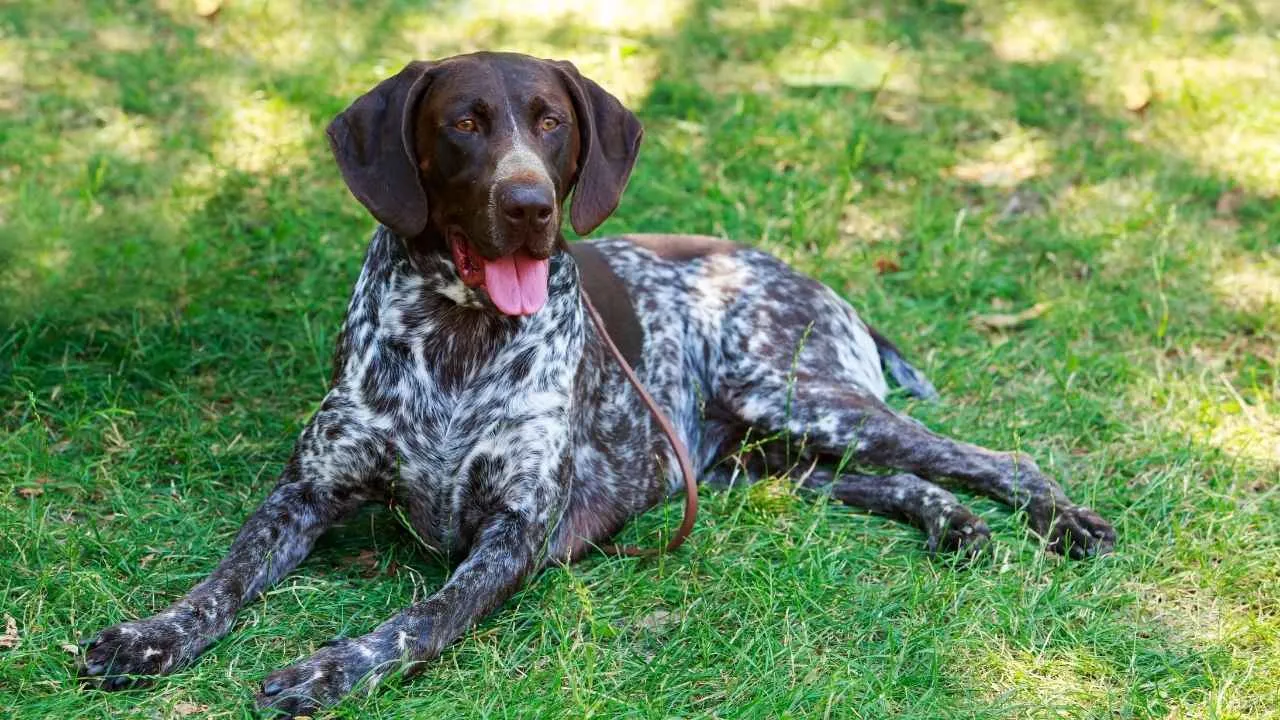
The German Shorthaired Pointer is widely regarded as a healthy breed, making it a great choice for pet owners who prioritize long-term well-being. Known for its athletic build and high energy, this breed is naturally robust and enjoys good overall health, requiring minimal veterinary intervention compared to other breeds.
As purebred dogs, German Shorthaired Pointers typically suffer from fewer genetic health problems. They are bred for performance and stamina, traits that contribute to their physical durability and resilience. When sourced from reputable breeders, these dogs generally exhibit fewer health concerns, ensuring a long, healthy life.
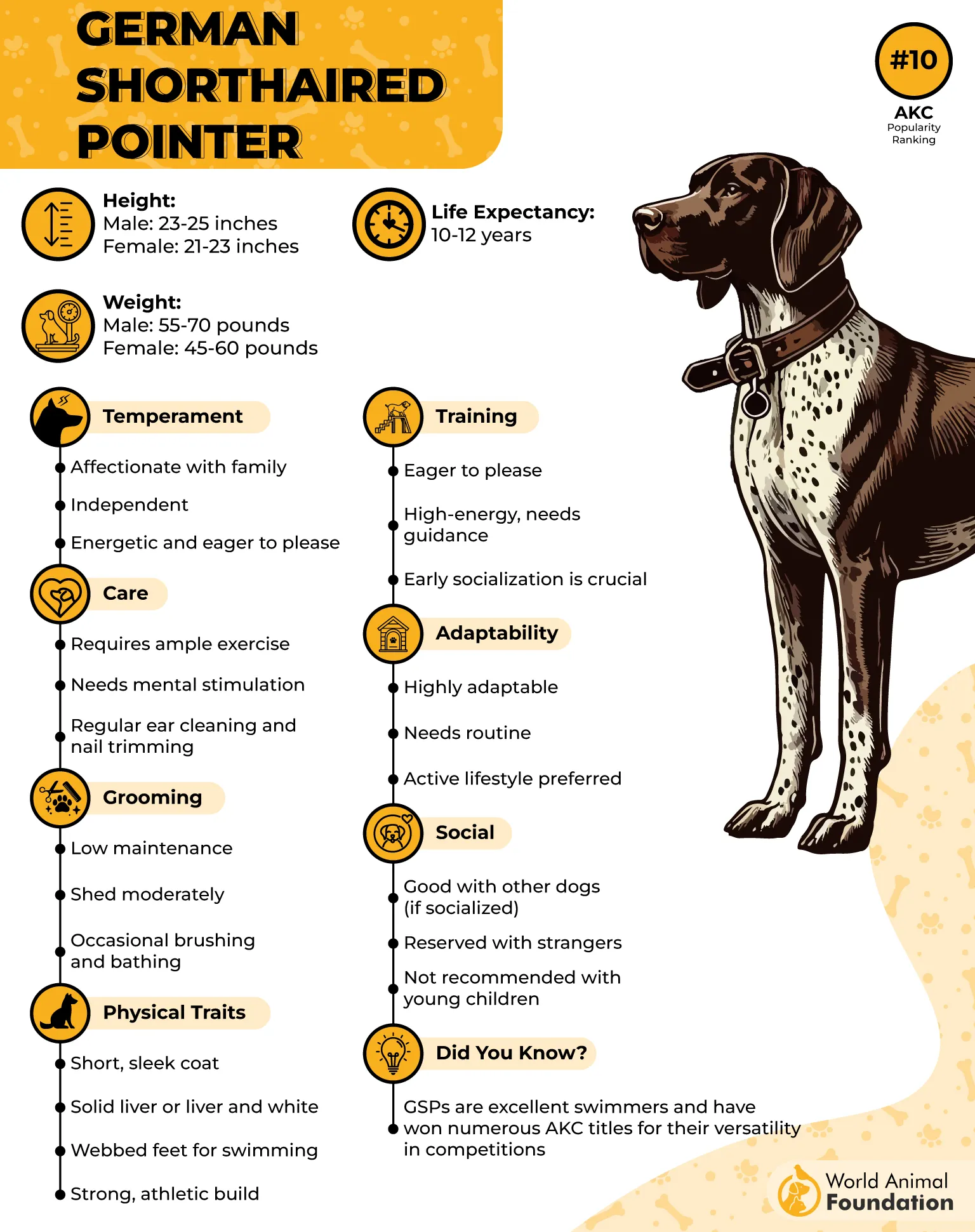
This breed is known for having some of the least health concerns, which makes it an ideal companion for those seeking a low-maintenance pet in terms of medical care. While occasional issues such as hip dysplasia or hypothyroidism can occur, these are relatively rare and can be managed with proper care and regular checkups.
Regular exercise and a balanced diet are crucial for maintaining the German Shorthaired Pointer’s health. Their boundless energy and love for outdoor activities help keep them fit and active, preventing obesity and other health-related problems that can arise from a sedentary lifestyle. Their active nature also contributes to their strong immune system, further minimizing health risks.
With proper care, a balanced diet, and regular veterinary visits, this breed is well-equipped to live a long, healthy life, making them an excellent choice for families seeking a happy, active companion.
Conclusion
When choosing a dog, many breeds stand out for their resilience and longevity. Breeds like the Border Collies, Australian Shepherds, and German Pinschers are often considered very healthy breeds, with least health problems and a lower risk of genetic disorders.
Small dogs such as the Bichon Frise and Toy Poodles are also known for their overall good health, while miniature schnauzers and Siberian Huskies remain strong contenders due to their robust nature. While German Shepherds and the Old English Sheepdog are both highly active and healthy, the Oldest dog breeds tend to show just how enduring certain breeds can be.
If you’re looking for a dog with the fewest health issues, opting for only dog breed selections like the German Shepherd or the English Sheepdog may be ideal. Ultimately, prioritizing health in your dog selection can result in many happy, long years of companionship.


